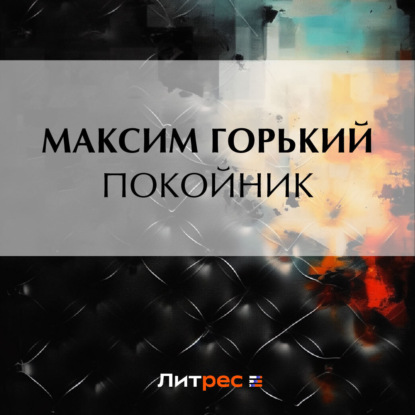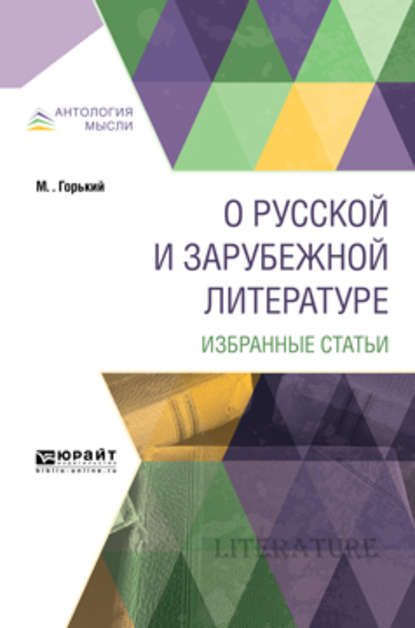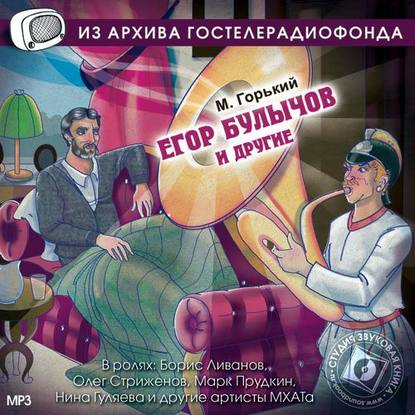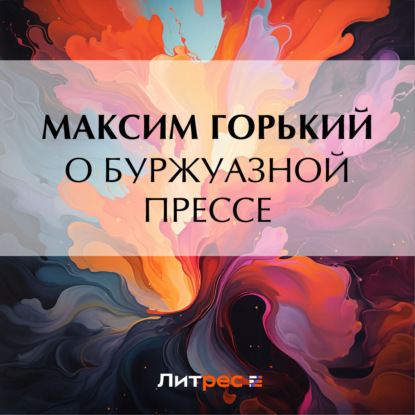 Полная версия
Полная версияПолная версия:
Максим Горький Mother
- + Увеличить шрифт
- - Уменьшить шрифт

Maksim Gorky
Mother
PART I
CHAPTER I
Every day the factory whistle bellowed forth its shrill, roaring, trembling noises into the smoke-begrimed and greasy atmosphere of the workingmen's suburb; and obedient to the summons of the power of steam, people poured out of little gray houses into the street. With somber faces they hastened forward like frightened roaches, their muscles stiff from insufficient sleep. In the chill morning twilight they walked through the narrow, unpaved street to the tall stone cage that waited for them with cold assurance, illumining their muddy road with scores of greasy, yellow, square eyes. The mud plashed under their feet as if in mocking commiseration. Hoarse exclamations of sleepy voices were heard; irritated, peevish, abusive language rent the air with malice; and, to welcome the people, deafening sounds floated about – the heavy whir of machinery, the dissatisfied snort of steam. Stern and somber, the black chimneys stretched their huge, thick sticks high above the village.
In the evening, when the sun was setting, and red rays languidly glimmered upon the windows of the houses, the factory ejected its people like burned-out ashes, and again they walked through the streets, with black, smoke-covered faces, radiating the sticky odor of machine oil, and showing the gleam of hungry teeth. But now there was animation in their voices, and even gladness. The servitude of hard toil was over for the day. Supper awaited them at home, and respite.
The day was swallowed up by the factory; the machine sucked out of men's muscles as much vigor as it needed. The day was blotted out from life, not a trace of it left. Man made another imperceptible step toward his grave; but he saw close before him the delights of rest, the joys of the odorous tavern, and he was satisfied.
On holidays the workers slept until about ten o'clock. Then the staid and married people dressed themselves in their best clothes and, after duly scolding the young folks for their indifference to church, went to hear mass. When they returned from church, they ate pirogs, the Russian national pastry, and again lay down to sleep until the evening. The accumulated exhaustion of years had robbed them of their appetites, and to be able to eat they drank, long and deep, goading on their feeble stomachs with the biting, burning lash of vodka.
In the evening they amused themselves idly on the street; and those who had overshoes put them on, even if it was dry, and those who had umbrellas carried them, even if the sun was shining. Not everybody has overshoes and an umbrella, but everybody desires in some way, however small, to appear more important than his neighbor.
Meeting one another they spoke about the factory and the machines, had their fling against their foreman, conversed and thought only of matters closely and manifestly connected with their work. Only rarely, and then but faintly, did solitary sparks of impotent thought glimmer in the wearisome monotony of their talk. Returning home they quarreled with their wives, and often beat them, unsparing of their fists. The young people sat in the taverns, or enjoyed evening parties at one another's houses, played the accordion, sang vulgar songs devoid of beauty, danced, talked ribaldry, and drank.
Exhausted with toil, men drank swiftly, and in every heart there awoke and grew an incomprehensible, sickly irritation. It demanded an outlet. Clutching tenaciously at every pretext for unloading themselves of this disquieting sensation, they fell on one another for mere trifles, with the spiteful ferocity of beasts, breaking into bloody quarrels which sometimes ended in serious injury and on rare occasions even in murder.
This lurking malice steadily increased, inveterate as the incurable weariness in their muscles. They were born with this disease of the soul inherited from their fathers. Like a black shadow it accompanied them to their graves, spurring on their lives to crime, hideous in its aimless cruelty and brutality.
On holidays the young people came home late at night, dirty and dusty, their clothes torn, their faces bruised, boasting maliciously of the blows they had struck their companions, or the insults they had inflicted upon them; enraged or in tears over the indignities they themselves had suffered; drunken and piteous, unfortunate and repulsive. Sometimes the boys would be brought home by the mother or the father, who had picked them up in the street or in a tavern, drunk to insensibility. The parents scolded and swore at them peevishly, and beat their spongelike bodies, soaked with liquor; then more or less systematically put them to bed, in order to rouse them to work early next morning, when the bellow of the whistle should sullenly course through the air.
They scolded and beat the children soundly, notwithstanding the fact that drunkenness and brawls among young folk appeared perfectly legitimate to the old people. When they were young they, too, had drunk and fought; they, too, had been beaten by their mothers and fathers. Life had always been like that. It flowed on monotonously and slowly somewhere down the muddy, turbid stream, year after year; and it was all bound up in strong ancient customs and habits that led them to do one and the same thing day in and day out. None of them, it seemed, had either the time or the desire to attempt to change this state of life.
Once in a long while a stranger would come to the village. At first he attracted attention merely because he was a stranger. Then he aroused a light, superficial interest by the stories of the places where he had worked. Afterwards the novelty wore off, the people got used to him, and he remained unnoticed. From his stories it was clear that the life of the workingmen was the same everywhere. And if so, then what was there to talk about?
Occasionally, however, some stranger spoke curious things never heard of in the suburb. The men did not argue with him, but listened to his odd speeches with incredulity. His words aroused blind irritation in some, perplexed alarm in others, while still others were disturbed by a feeble, shadowy glimmer of the hope of something, they knew not what. And they all began to drink more in order to drive away the unnecessary, meddlesome excitement.
Noticing in the stranger something unusual, the villagers cherished it long against him and treated the man who was not like them with unaccountable apprehension. It was as if they feared he would throw something into their life which would disturb its straight, dismal course. Sad and difficult, it was yet even in its tenor. People were accustomed to the fact that life always oppressed them with the same power. Unhopeful of any turn for the better, they regarded every change as capable only of increasing their burden.
And the workingmen of the suburb tacitly avoided people who spoke unusual things to them. Then these people disappeared again, going off elsewhere, and those who remained in the factory lived apart, if they could not blend and make one whole with the monotonous mass in the village.
Living a life like that for some fifty years, a workman died.
Thus also lived Michael Vlasov, a gloomy, sullen man, with little eyes which looked at everybody from under his thick eyebrows suspiciously, with a mistrustful, evil smile. He was the best locksmith in the factory, and the strongest man in the village. But he was insolent and disrespectful toward the foreman and the superintendent, and therefore earned little; every holiday he beat somebody, and everyone disliked and feared him.
More than one attempt was made to beat him in turn, but without success. When Vlasov found himself threatened with attack, he caught a stone in his hand, or a piece of wood or iron, and spreading out his legs stood waiting in silence for the enemy. His face overgrown with a dark beard from his eyes to his neck, and his hands thickly covered with woolly hair, inspired everybody with fear. People were especially afraid of his eyes. Small and keen, they seemed to bore through a man like steel gimlets, and everyone who met their gaze felt he was confronting a beast, a savage power, inaccessible to fear, ready to strike unmercifully.
"Well, pack off, dirty vermin!" he said gruffly. His coarse, yellow teeth glistened terribly through the thick hair on his face. The men walked off uttering coward abuse.
"Dirty vermin!" he snapped at them, and his eyes gleamed with a smile sharp as an awl. Then holding his head in an attitude of direct challenge, with a short, thick pipe between his teeth, he walked behind them, and now and then called out: "Well, who wants death?"
No one wanted it.
He spoke little, and "dirty vermin" was his favorite expression. It was the name he used for the authorities of the factory, and the police, and it was the epithet with which he addressed his wife: "Look, you dirty vermin, don't you see my clothes are torn?"
When Pavel, his son, was a boy of fourteen, Vlasov was one day seized with the desire to pull him by the hair once more. But Pavel grasped a heavy hammer, and said curtly:
"Don't touch me!"
"What!" demanded his father, bending over the tall, slender figure of his son like a shadow on a birch tree.
"Enough!" said Pavel. "I am not going to give myself up any more."
And opening his dark eyes wide, he waved the hammer in the air.
His father looked at him, folded his shaggy hands on his back, and, smiling, said:
"All right." Then he drew a heavy breath and added: "Ah, you dirty vermin!"
Shortly after this he said to his wife:
"Don't ask me for money any more. Pasha will feed you now."
"And you will drink up everything?" she ventured to ask.
"None of your business, dirty vermin!" From that time, for three years, until his death, he did not notice, and did not speak to his son.
Vlasov had a dog as big and shaggy as himself. She accompanied him to the factory every morning, and every evening she waited for him at the gate. On holidays Vlasov started off on his round of the taverns. He walked in silence, and stared into people's faces as if looking for somebody. His dog trotted after him the whole day long. Returning home drunk he sat down to supper, and gave his dog to eat from his own bowl. He never beat her, never scolded, and never petted her. After supper he flung the dishes from the table – if his wife was not quick enough to remove them in time – put a bottle of whisky before him, and leaning his back against the wall, began in a hoarse voice that spread anguish about him to bawl a song, his mouth wide open and his eyes closed. The doleful sounds got entangled in his mustache, knocking off the crumbs of bread. He smoothed down the hair of his beard and mustache with his thick fingers and sang – sang unintelligible words, long drawn out. The melody recalled the wintry howl of wolves. He sang as long as there was whisky in the bottle, then he dropped on his side upon the bench, or let his head sink on the table, and slept in this way until the whistle began to blow. The dog lay at his side.
When he died, he died hard. For five days, turned all black, he rolled in his bed, gnashing his teeth, his eyes tightly closed. Sometimes he would say to his wife: "Give me arsenic. Poison me."
She called a physician. He ordered hot poultices, but said an operation was necessary and the patient must be taken at once to the hospital.
"Go to the devil! I will die by myself, dirty vermin!" said Michael.
And when the physician had left, and his wife with tears in her eyes began to insist on an operation, he clenched his fists and announced threateningly:
"Don't you dare! It will be worse for you if I get well."
He died in the morning at the moment when the whistle called the men to work. He lay in the coffin with open mouth, his eyebrows knit as if in a scowl. He was buried by his wife, his son, the dog, an old drunkard and thief, Daniel Vyesovshchikov, a discharged smelter, and a few beggars of the suburb. His wife wept a little and quietly; Pavel did not weep at all. The villagers who met the funeral in the street stopped, crossed themselves, and said to one another: "Guess Pelagueya is glad he died!" And some corrected: "He didn't die; he rotted away like a beast."
When the body was put in the ground, the people went away, but the dog remained for a long time, and sitting silently on the fresh soil, she sniffed at the grave.
CHAPTER II
Two weeks after the death of his father, on a Sunday, Pavel came home very drunk. Staggering he crawled to a corner in the front of the room, and striking his fist on the table as his father used to do, shouted to his mother:
"Supper!"
The mother walked up to him, sat down at his side, and with her arm around her son, drew his head upon her breast. With his hand on her shoulder he pushed her away and shouted:
"Mother, quick!"
"You foolish boy!" said the mother in a sad and affectionate voice, trying to overcome his resistance.
"I am going to smoke, too. Give me father's pipe," mumbled Pavel indistinctly, wagging his tongue heavily.
It was the first time he had been drunk. The alcohol weakened his body, but it did not quench his consciousness, and the question knocked at his brain: "Drunk? Drunk?"
The fondling of his mother troubled him, and he was touched by the sadness in her eyes. He wanted to weep, and in order to overcome this desire he endeavored to appear more drunk than he actually was.
The mother stroked his tangled hair, and said in a low voice:
"Why did you do it? You oughtn't to have done it."
He began to feel sick, and after a violent attack of nausea the mother put him to bed, and laid a wet towel over his pale forehead. He sobered a little, but under and around him everything seemed to be rocking; his eyelids grew heavy; he felt a bad, sour taste in his mouth; he looked through his eyelashes on his mother's large face, and thought disjointedly:
"It seems it's too early for me. Others drink and nothing happens – and I feel sick."
Somewhere from a distance came the mother's soft voice:
"What sort of a breadgiver will you be to me if you begin to drink?"
He shut his eyes tightly and answered:
"Everybody drinks."
The mother sighed. He was right. She herself knew that besides the tavern there was no place where people could enjoy themselves; besides the taste of whisky there was no other gratification. Nevertheless she said:
"But don't you drink. Your father drank for both of you. And he made enough misery for me. Take pity on your mother, then, will you not?"
Listening to the soft, pitiful words of his mother, Pavel remembered that in his father's lifetime she had remained unnoticed in the house. She had been silent and had always lived in anxious expectation of blows. Desiring to avoid his father, he had been home very little of late; he had become almost unaccustomed to his mother, and now, as he gradually sobered up, he looked at her fixedly.
She was tall and somewhat stooping. Her heavy body, broken down with long years of toil and the beatings of her husband, moved about noiselessly and inclined to one side, as if she were in constant fear of knocking up against something. Her broad oval face, wrinkled and puffy, was lighted up with a pair of dark eyes, troubled and melancholy as those of most of the women in the village. On her right eyebrow was a deep scar, which turned the eyebrow upward a little; her right ear, too, seemed to be higher than the left, which gave her face the appearance of alarmed listening. Gray locks glistened in her thick, dark hair, like the imprints of heavy blows. Altogether she was soft, melancholy, and submissive.
Tears slowly trickled down her cheeks.
"Wait, don't cry!" begged the son in a soft voice. "Give me a drink."
She rose and said:
"I'll give you some ice water."
But when she returned he was already asleep. She stood over him for a minute, trying to breathe lightly. The cup in her hand trembled, and the ice knocked against the tin. Then, setting the cup on the table, she knelt before the sacred image upon the wall, and began to pray in silence. The sounds of dark, drunken life beat against the window panes; an accordion screeched in the misty darkness of the autumn night; some one sang a loud song; some one was swearing with ugly, vile oaths, and the excited sounds of women's irritated, weary voices cut the air.
Life in the little house of the Vlasovs flowed on monotonously, but more calmly and undisturbed than before, and somewhat different from everywhere else in the suburb.
The house stood at the edge of the village, by a low but steep and muddy declivity. A third of the house was occupied by the kitchen and a small room used for the mother's bedroom, separated from the kitchen by a partition reaching partially to the ceiling. The other two thirds formed a square room with two windows. In one corner stood Pavel's bed, in front a table and two benches. Some chairs, a washstand with a small looking-glass over it, a trunk with clothes, a clock on the wall, and two ikons – this was the entire outfit of the household.
Pavel tried to live like the rest. He did all a young lad should do – bought himself an accordion, a shirt with a starched front, a loud-colored necktie, overshoes, and a cane. Externally he became like all the other youths of his age. He went to evening parties and learned to dance a quadrille and a polka. On holidays he came home drunk, and always suffered greatly from the effects of liquor. In the morning his head ached, he was tormented by heartburns, his face was pale and dull.
Once his mother asked him:
"Well, did you have a good time yesterday?"
He answered dismally and with irritation:
"Oh, dreary as a graveyard! Everybody is like a machine. I'd better go fishing or buy myself a gun."
He worked faithfully, without intermission and without incurring fines. He was taciturn, and his eyes, blue and large like his mother's, looked out discontentedly. He did not buy a gun, nor did he go a-fishing; but he gradually began to avoid the beaten path trodden by all. His attendance at parties became less and less frequent, and although he went out somewhere on holidays, he always returned home sober. His mother watched him unobtrusively but closely, and saw the tawny face of her son grow keener and keener, and his eyes more serious. She noticed that his lips were compressed in a peculiar manner, imparting an odd expression of austerity to his face. It seemed as if he were always angry at something, or as if a canker gnawed at him. At first his friends came to visit him, but never finding him at home, they remained away.
The mother was glad to see her son turning out different from all the other factory youth; but a feeling of anxiety and apprehension stirred in her heart when she observed that he was obstinately and resolutely directing his life into obscure paths leading away from the routine existence about him – that he turned in his career neither to the right nor the left.
He began to bring books home with him. At first he tried to escape attention when reading them; and after he had finished a book, he hid it. Sometimes he copied a passage on a piece of paper, and hid that also.
"Aren't you well, Pavlusha?" the mother asked once.
"I'm all right," he answered.
"You are so thin," said the mother with a sigh.
He was silent.
They spoke infrequently, and saw each other very little. In the morning he drank tea in silence, and went off to work; at noon he came for dinner, a few insignificant remarks were passed at the table, and he again disappeared until the evening. And in the evening, the day's work ended, he washed himself, took supper, and then fell to his books, and read for a long time. On holidays he left home in the morning and returned late at night. She knew he went to the city and the theater; but nobody from the city ever came to visit him. It seemed to her that with the lapse of time her son spoke less and less; and at the same time she noticed that occasionally and with increasing frequency he used new words unintelligible to her, and that the coarse, rude, and hard expressions dropped from his speech. In his general conduct, also, certain traits appeared, forcing themselves upon his mother's attention. He ceased to affect the dandy, but became more attentive to the cleanliness of his body and dress, and moved more freely and alertly. The increasing softness and simplicity of his manner aroused a disquieting interest in his mother.
Once he brought a picture and hung it on the wall. It represented three persons walking lightly and boldly, and conversing.
"This is Christ risen from the dead, and going to Emmaus," explained Pavel.
The mother liked the picture, but she thought:
"You respect Christ, and yet you do not go to church."
Then more pictures appeared on the walls, and the number of books increased on the shelves neatly made for him by one of his carpenter friends. The room began to look like a home.
He addressed his mother with the reverential plural "you," and called her "mother" instead of "mamma." But sometimes he turned to her suddenly, and briefly used the simple and familiar form of the singular: "Mamma, please be not thou disturbed if I come home late to-night."
This pleased her; in such words she felt something serious and strong.
But her uneasiness increased. Since her son's strangeness was not clarified with time, her heart became more and more sharply troubled with a foreboding of something unusual. Every now and then she felt a certain dissatisfaction with him, and she thought: "All people are like people, and he is like a monk. He is so stern. It's not according to his years." At other times she thought: "Maybe he has become interested in some sort of a girl down there."
But to go about with girls, money is needed, and he gave almost all his earnings to her.
Thus weeks and months elapsed; and imperceptibly two years slipped by, two years of a strange, silent life, full of disquieting thoughts and anxieties that kept continually increasing.
Once, when after supper Pavel drew the curtain over the window, sat down in a corner, and began to read, his tin lamp hanging on the wall over his head, the mother, after removing the dishes, came out from the kitchen and carefully walked up to him. He raised his head, and without speaking looked at her with a questioning expression.
"Nothing, Pasha, just so!" she said hastily, and walked away, moving her eyebrows agitatedly. But after standing in the kitchen for a moment, motionless, thoughtful, deeply preoccupied, she washed her hands and approached her son again.
"I want to ask you," she said in a low, soft voice, "what you read all the time."
He put his book aside and said to her:
"Sit down, mother."
The mother sat down heavily at his side, and straightening herself into an attitude of intense, painful expectation waited for something momentous.
Without looking at her, Pavel spoke, not loudly, but for some reason very sternly:
"I am reading forbidden books. They are forbidden to be read because they tell the truth about our – about the workingmen's life. They are printed in secret, and if I am found with them I will be put in prison – I will be put in prison because I want to know the truth."
Breathing suddenly became difficult for her. Opening her eyes wide she looked at her son, and he seemed to her new, as if a stranger. His voice was different, lower, deeper, more sonorous. He pinched his thin, downy mustache, and looked oddly askance into the corner. She grew anxious for her son and pitied him.
"Why do you do this, Pasha?"
He raised his head, looked at her, and said in a low, calm voice:
"I want to know the truth."
His voice sounded placid, but firm; and his eyes flashed resolution. She understood with her heart that her son had consecrated himself forever to something mysterious and awful. Everything in life had always appeared to her inevitable; she was accustomed to submit without thought, and now, too, she only wept softly, finding no words, but in her heart she was oppressed with sorrow and distress.
"Don't cry," said Pavel, kindly and softly; and it seemed to her that he was bidding her farewell.







